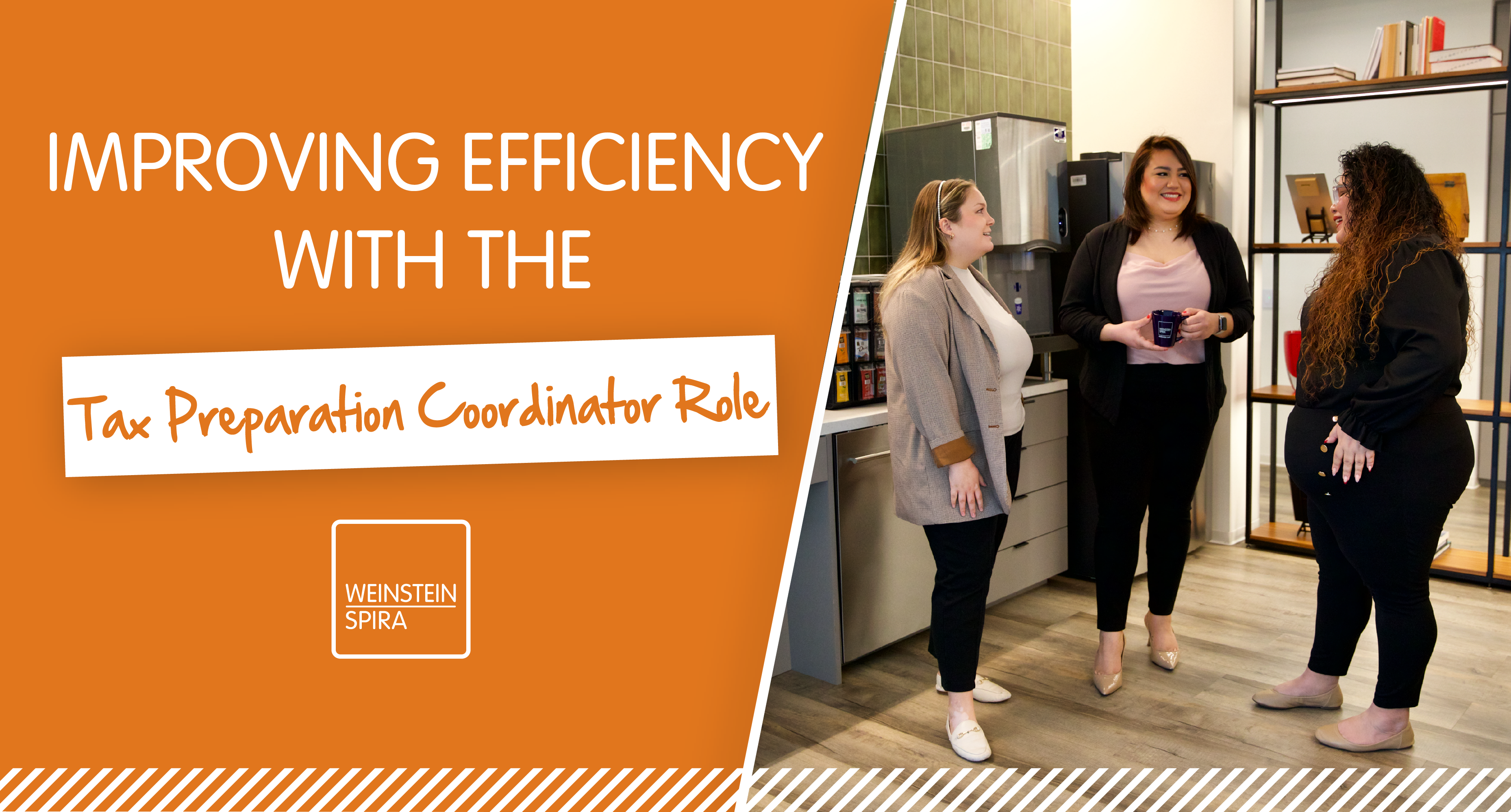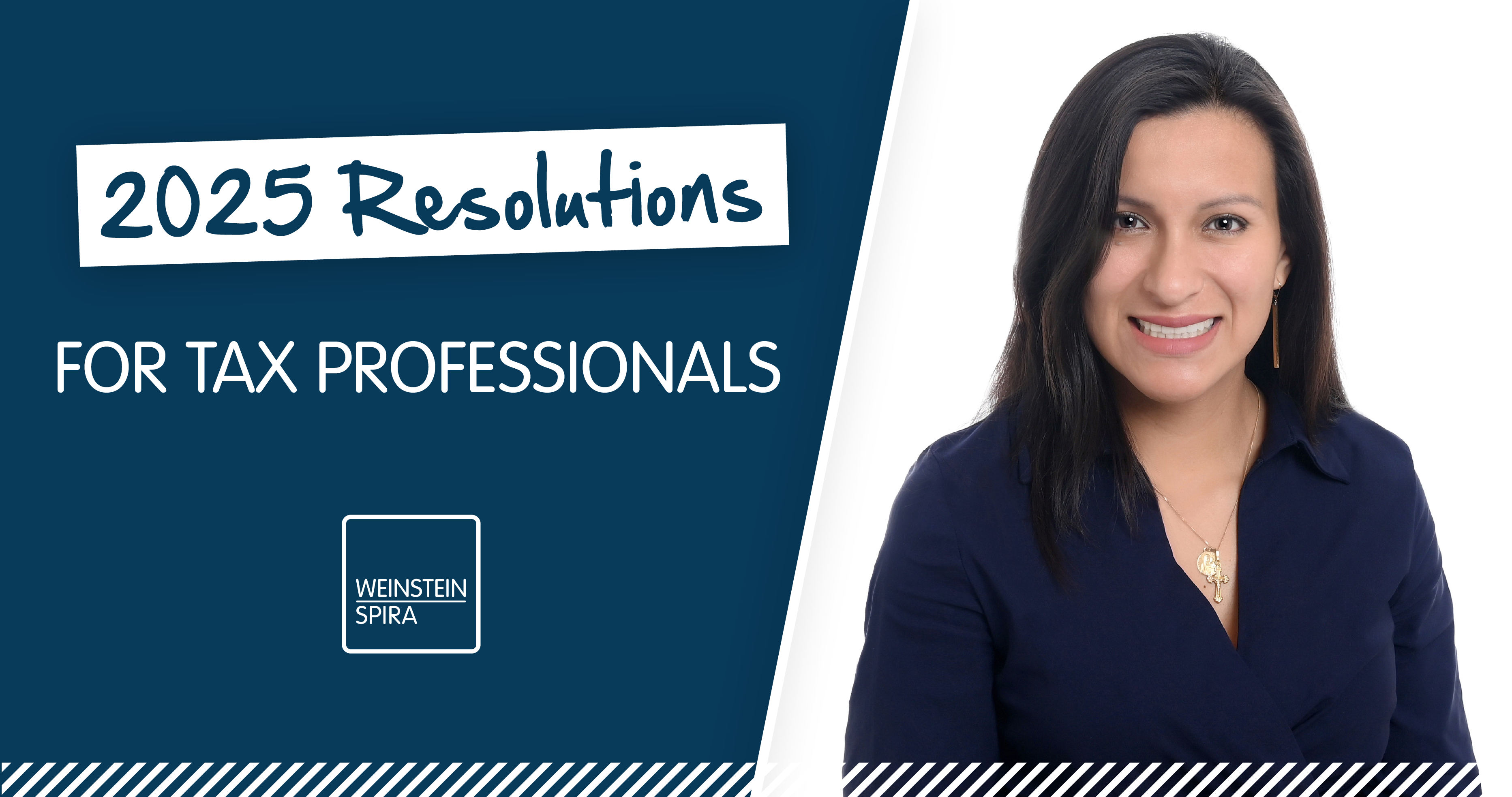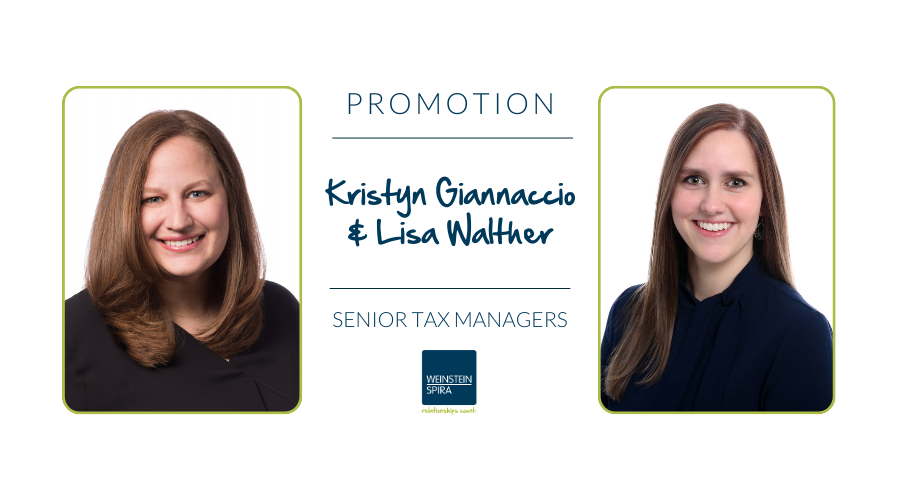At Weinstein Spira, like many accounting firms, we face periods of significant amounts of work due to compression near tax filing deadlines. To address this, our firm has invested valuable time and effort to identify a solution: the Tax Preparation Coordinator (TPC) role. As someone currently in the TPC role, I will delve into the unique advantages this role brings to the tax preparation process and how it enhances the efficiency and well-being of the tax team.
What is the TPC Role?
I started my career at a credit union where I gained extensive experience in bookkeeping, specifically in the general ledger to account for automotive drafts. My responsibilities included handling the payment of automotive drafts to disburse money, ensuring that all accounts were balanced, and that no money was missing. This experience sparked my interest in accounting. However, after working in the mortgage industry for a few years, I realized that the day-to-day work I was doing would not satisfy my need for growth and there were minimal opportunities for intense critical thinking. That’s when I stumbled upon a new and exciting opportunity with Weinstein Spira as a TPC.
As a TPC, I am responsible for organizing information during the preliminary stages of the tax preparation process, which can be some of the most time-consuming portions of a return. For a 1040 or trust/estate return, this means organizing the documents provided by the client, updating client request lists, creating in-house recap schedules of tax data, pulling items off the internet such as property taxes and K-1s, and other miscellaneous items needed to prepare a client’s tax return. For business returns, I input the client’s financials into our software, update the client request lists and roll forward any in-house lead sheets. During the offseason, I help with other tasks, such as rolling forward documentation, watermarking draft returns and sending engagement letters.
Why Choose to Create Efficiency with The Tax Prepping Process?
The TPC role has been effective at our firm to address the volume of work that the tax staff receive.
Both the TPCs and tax staff work in tandem as returns progress and are completed through our operation. Within just the three tax seasons that I have been a part of, there has been a major reduction in preparation time by our tax staff due to the development of the new role. While working overtime during peak seasons is common in accounting, there is a growing trend towards creating more workload balancing, even during the busy season. This has been possible at our firm because they value developing creative solutions to better streamline our processes.
The Learning Curve and Benefits of Implementing a New Role
Navigating the challenges of this role involved a steep learning curve, not only for me, entering the industry with some accounting knowledge, but also for the firm as this was a new position. Stepping into a role that is new and constantly evolving was a challenge. My primary goal was to absorb essential insights and to integrate within the department. As the role continued to evolve, we found that creating a set of steps and a standard process for entering data and processing returns produced even better results. While it may seem simple and straight forward, having a streamlined process makes a huge difference, especially when you have a large volume of returns waiting to be processed. Additionally, the number of mistakes was also reduced significantly with standardization.
Entering the accounting industry is no easy feat, and discovering a workplace that aligns with your needs is key to success. The ability to voice concerns and witness a responsive organization is a valuable gift. Contrary to the intimidating perception some may have of accounting, there are firms who are working to alleviate some of those perceptions by addressing the challenges that the industry faces. If the curation of a new role can help your workflow, then think about how it can be implemented to increase efficiency within your firm. The true gift lies in continuously questioning how one can contribute to the betterment of the organization, therefore allowing challenges to become opportunities for growth.
In Summary
The Tax Preparation Coordinator (TPC) role has emerged as a powerful solution to the challenges faced by Weinstein Spira and other firms dealing with an increased workload. By streamlining tax preparation processes, the TPC role not only reduces workload but also promotes work-life balance for accountants. The learning curve associated with this new position led to valuable insights and documented procedures, ultimately enhancing efficiency. As organizations continue to evolve, innovative roles like the TPC demonstrate how challenges can be transformed into opportunities for growth and improvement.



